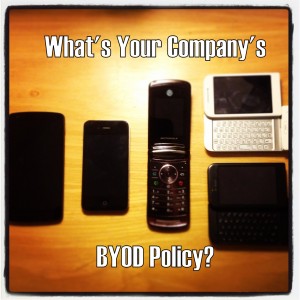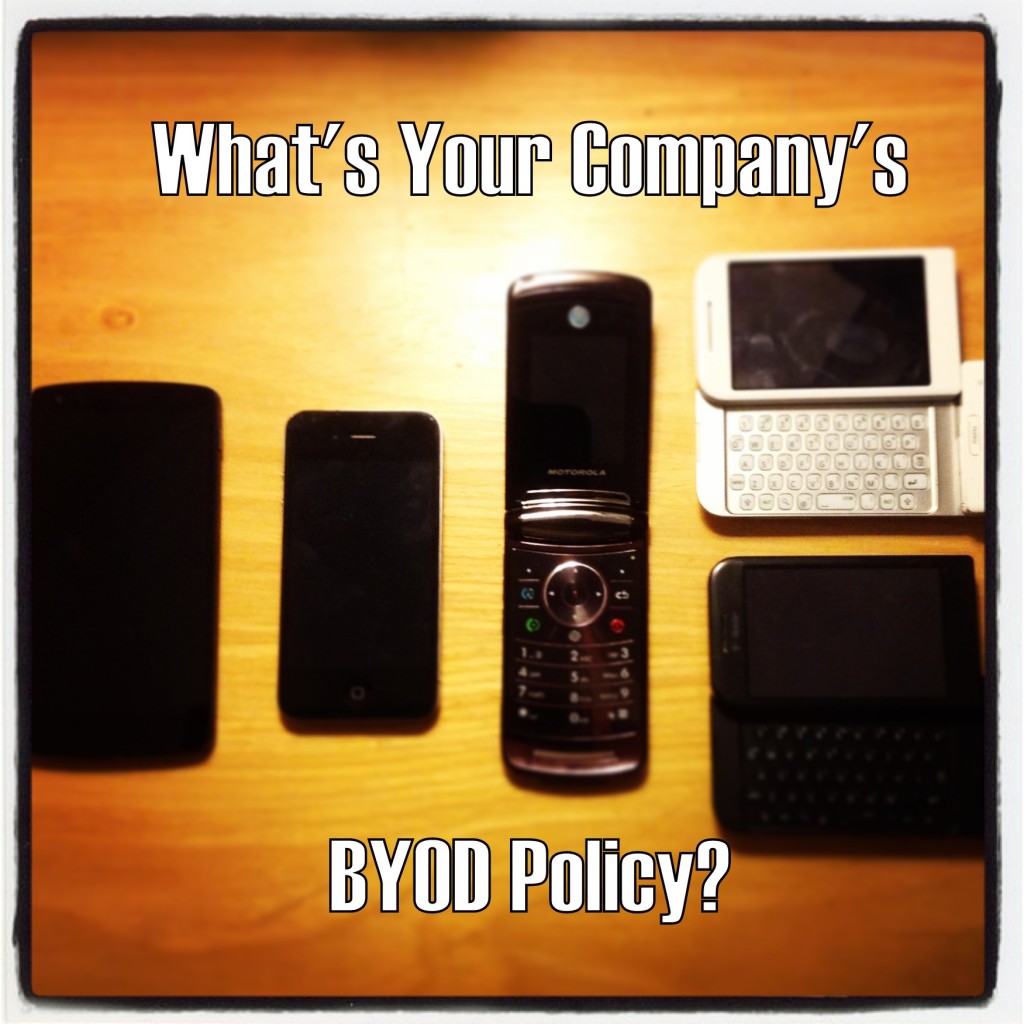
A study by BI Intelligence states that 1 in every 5 people in the world own a smartphone, and 1 in every 17 own a tablet. With the rise of smartphones penetration we see that more organizations embracing bring your own device (BYOD) programs allowing for the use of personal devices.
As more and more employees bring in their own device to work, businesses need to think about how it can positively and negatively affect the workplace. When used properly, technology enables employees to work when, where, and how they want. And on the flip side, when abused, it can have a big impact from loss data & intellectual property that can impact the bottom line. With that in mind, it’s important to have an electronic communications policy and update it regularly.
Smartphones and Tablets
On average, there will be two smartphones for every nine people on earth, or 1.4 billion smartphones – BI Intelligence
As more and more personal devices enter the workplace, it enables employees to stay connected to teams, suppliers, and customers through all their communication systems – voice, email, and video. Having access to multiple devices can disturb other employees, so finding a usage balance in your communications policy is important.
Email vs Voice
Businesses must acknowledge when a phone call is more applicable than an email. Having all your devices connected to a unified communications system provides allows employees to simply call and speak to your customer. In many ways, a phone conversation is favorable as it is more formal. Since email adopts the shorthand of instant messaging, it may preferred between employees and existing clients. Setting guidelines for customer communications should keep the brand in mind..
Customer Service Protocol
This Call May Be Recorded…
Call recording is extremely useful feature to make sure that customer service is top priority. Monitoring employee conversations can help employers by ensuring privacy compliance and employee training. Review past conversations to discover what to include in your communications policy.
Social Media
Thoughts are my own…
Social media has become an essential part of modern-day business, specifically with marketing and customer service. The very essence of social media can distract some employees. Guidelines dictating proper times of day and purposes for social media in-office can curb this concern. When employees use social media during personal time, your communications policy must foresee the dangers of online conversations, posting, and links directed toward the company. Be sure to show exactly what can and cannot be said to avoid loss of sensitive information outside of the office.

